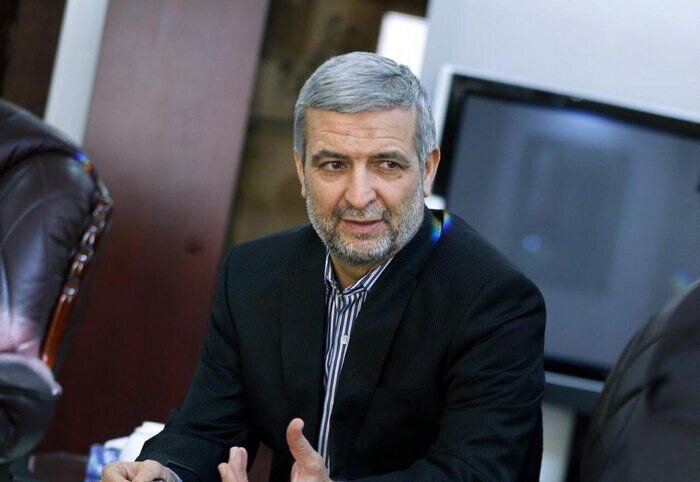Iran attends 1st meeting of CounterNarcotics Working Group in Kabul
Iran attends 1st meeting of Counter-Narcotics Working Group in Kabul
TEHRAN –Iran’s special representative to Afghanistan, Hassan Kazemi-Qomi, has participated in the inaugural meeting of the Counter Narcotics Working Group held by the Office of the United Nations Assistance Mission in Kabul, Afghanistan.

The initiative was held online on Thursday, November 28, as a follow-up to the third Meeting of Special Envoys on Afghanistan, held in Doha, Qatar, in June, where counter-narcotics was identified as a key priority for international cooperation.
According to the latest report by the UN Office on Drugs and Crime (UNODC), there has been a 30 percent increase in opium production, reaching 433 tons, in Afghanistan compared to last year.
Representatives from other countries including Turkey, Pakistan, the United States, Russia, China, and Norway, as well as experts from the European Union, and the United Nations Office on Drugs and Crime (UNODC) also participated in the event.
According to UNAMA, the working group would facilitate coordinated collaboration with the Taliban in the field of counter-narcotics.
“The issue of narcotics is interconnected with other issues such as political stability, economic situation, livelihood, and infrastructure development in Afghanistan. So, combating drugs necessitates considering crises as well as other issues,” IRNA quoted Kazemi-Qomi as saying.
The solution to Afghanistan’s problem lies in the collective efforts of the regional countries. It involves utilizing the capabilities, capacities, and experiences of the countries in the region to find a coherent, inclusive, and sustainable solution to address the challenges in Afghanistan.
Highlighting the country’s capabilities and potential in different sectors, particularly the experiences in cooperating with various UN institutions, the official voiced the country’s readiness to engage in advancing regional-oriented plans and projects in Afghanistan.
Pointing out that the meeting is an intergovernmental one, Kazemi-Qomi emphasized that regional capacities should be used to lead the meeting. Hence, the Iranian and Pakistani delegations announced readiness to lead the meeting in order to propel the negotiations forward.
During the meeting, Roza Isakovna Otunbayeva, the representative of the UN Secretary-General and the head of UNAMA, called counter-narcotics an issue of critical importance to Afghanistan, which, according to her, affects both rural communities and regional peace and stability.
At the end of the meeting, it was approved to establish three more specialized working groups, including a working group to combat drug supply, strengthen law enforcement and police cooperation, a working group to reduce demand and support the health and treatment sector, and a working group for alternative livelihoods. These working groups will be established in February 2025.
‘Effective implementation of anti-narcotics program needed’
In March, the former secretary general of the anti-narcotics headquarters stressed the need for effective implementation of anti-narcotics programs in the region free from political considerations.
“One of the most important challenges of the present era is the narcotic drugs, industrial substances and new psychedelics and the sufferings that I would like to refer to as the quiet war against humanity,” IRIB quoted Eskandar Momeni as saying.
He made the remarks in the 67th UN Commission on Narcotic Drugs, urging all countries to be committed to the sustainable and effective implementation of international drug control conventions.
“In the past five years, adopting a balanced strategy in the fight against drugs, the Islamic Republic of Iran has taken effective measures to promote security and public health in alignment with the implementation of the 2019 Ministerial Declaration, international treaties, and conventions,” Momeni added.
Intensifying efforts to combat drug supply and transit via enhanced border control measures and cracking down on money laundering are among the actions taken by the country.
“In the past five years, 4,450 tons of various materials of Afghan origin have been discovered through the dedication of 50 martyrs and sacrifices made by my colleagues,” he noted.
Iran welcomes any practical measures that lead to the reduction and stopping of the cultivation and production of all kinds of narcotics in Afghanistan.
“Despite our efforts, we have not observed a substantial decrease in drug trafficking in Afghanistan. In the last two weeks, two operations discovered shipments totaling 4800 kilograms of drugs destined for a certain European country,” Momeni added.
He continued: “Last year, as in previous years, we have witnessed the increasing trend of discovering methamphetamine from Afghanistan.”
He referred to the compilation and implementation of the comprehensive document on treatment and harm reduction; the expansion of treatment centers both quantitatively and qualitatively, the maximum use of the private sector and non-governmental organizations (7,200 centers), employing diverse treatment methods including pharmaceuticals and psychological and social interventions, ensuring access to medicinal substances for medical and scientific purposes, boosting harm reduction programs by providing various services to people at risk and managing the spread of AIDS and Hepatitis C as other measure taken by the country.
Momeni further underscored the need to stop the cruel and unilateral sanctions and foster cooperation between the United Nations, international communities, and Iran in various aspects to strengthen the global fight against drugs.
Improving the effectiveness of programs through the exchange of successful experiences in combating narcotics, reducing demand, fostering scientific collaborations, and monitoring illegal activities in cyberspace and the dark net which can be achieved by establishing specific mechanisms coordinated by relevant international authorities, are among the issues raised by Momeni.
In the end, he said the Islamic Republic of Iran strongly disagrees with the revision of the international drug control regime based on decriminalization, which is considered to be the destruction of humanity’s heritage in this important field.
MT/MG
source: tehrantimes.com